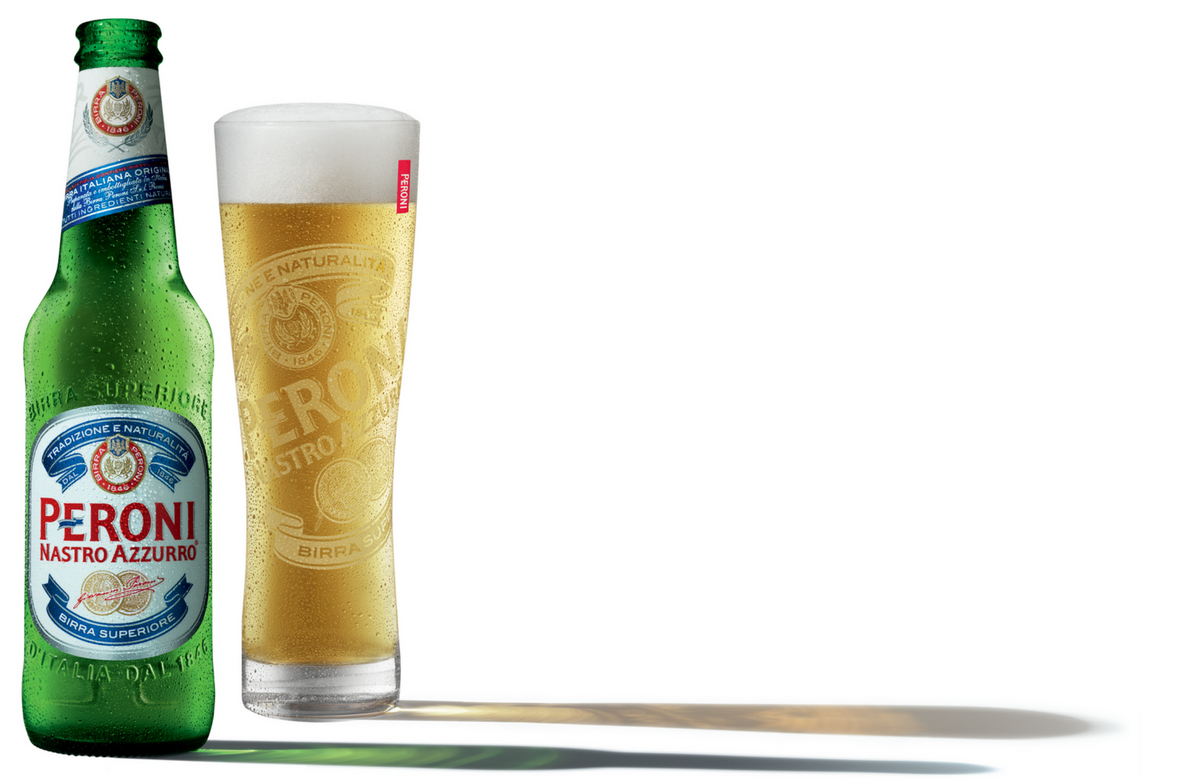In 2005, Miller Brewing Co. planted a small seed: an above-premium Italian import brand positioned as a luxury beer and available only in certain major U.S. markets.
Miller (and then MillerCoors) took a measured, deliberate approach with Peroni Nastro Azzurro, an easy-drinking Euro pale lager, allowing it to spread organically throughout the country.
Thirteen years later, its patience is paying off. Peroni is today the fastest-growing of the top 10 European import brands, and it’s zoomed into the top 5 on-premise growth brands in all of beer as measured by volume, according to Nielsen. In bars and restaurants, it is growing faster (albeit off a smaller base) than beer industry darling Michelob Ultra over the most-recent four-week period, per Nielsen on-premise data.
Overall, Peroni dollar sales are up 13.5 percent on a 13.8 percent rise in volume year-to-date. Over the most-recent four weeks, the trend is even better, with volume up 17.3 percent.
“This is exactly what we set out to do with the brand,” says David Schmid, senior director of brand management for Tenth and Blake, the MillerCoors prestige import and craft division. “This is a long-term plan that’s working, and the vision is coming to life as everyone dreamed.”
Peroni is a key entry for MillerCoors in the above-premium space, the hottest segment in beer. On top of that, it’s outpacing two of its key competitors in the European lager space: Heineken (-3.4 percent in sales, -4.4 percent in case volume) and Stella Artois (+2.6 percent in sales, +2.4 in volume,) per Nielsen all-outlet and convenience data.
Schmid traces Peroni’s sales surge to a combination of factors, including an expanded sales push and marketing budget as well as incremental displays earned by its Martone for Peroni bicycle program. The introduction of slim cans, which have performed well in the off-premise and elbowed their way into key on-premise venues, such as rooftop, poolside and other outdoor spaces, also has contributed.
MillerCoors has invested a record amount behind the brand in 2018, adding seven “priority markets” where it has dedicated sales and brand ambassador teams on the ground, hand-selling beer into select, prestige accounts. That’s up from 10 at the close of 2017 and just three in 2016. It will add even more next year.
Alongside its market expansion, the brand plans a more-robust advertising and marketing campaign for the brand, which falls smack in the middle of emerging beer industry trends with its aspirational and sophisticated brand positioning as well as its sessionability at 5.1 percent alcohol-by-volume.
Stella's stumbles
Its success comes as Anheuser-Busch’s Euro import, Stella Artois, has stumbled a bit in 2018. After years of robust growth and share gains, Stella’s volume growth has slipped to 2.4 percent year-to-date. Case share is flat.
Stella’s swoon has caught the attention of Anheuser-Busch InBev brass. The company recently reorganized its High End division, largely due to Stella, which “sometimes was left without the attention it deserves,” CEO Carlos Brito said in a recent conference call. In the reorg, the company moved Stella and other imports into their own division, separated from the company’s craft holdings and alternative offerings such as Spiked Seltzer.
Brendan Whitworth, Anheuser-Busch’s vice president of sales, told Beer Marketer’s Insights (subscription required) that the new division reporting to him is composed of a group “that gets up in the morning and goes to bed only thinking about Stella, only thinking about other import opportunities.”
Part of their focus, he told BMI, is normalizing Stella’s performance across the U.S., which “could double the business.” The brand also appears to be working on innovation. Stella recently received federal approval for labels of L’Heritage Artois, a limited-edition 6.5 percent ABV lager “uplifted by fine bubbles and finished with a subtle crisp taste” that will be packaged in 750-milliliter bottles.
Peroni's outlook bright
Schmid says brands like Stella and Heineken are large and successful, but in a difficult spot. “An Achilles heel of all above-premium brands is that size can work against you,” he says. “Once brands get so big and ubiquitous, they can lose what made them special. Consumers then look to find that next great thing. In this case, we think Peroni is poised to be the next great European import beer brand”
With a planned record investment again in 2019, the brand is poised to grow even more, Schmid says.
“We can’t be more excited. We’ve been patient, deliberate and very focused on building this brand the right way, and it’s built a ton of equity,” Schmid says. “You can’t do this overnight. This is one of those brands that’s going to be like a 13-year overnight success story.”

